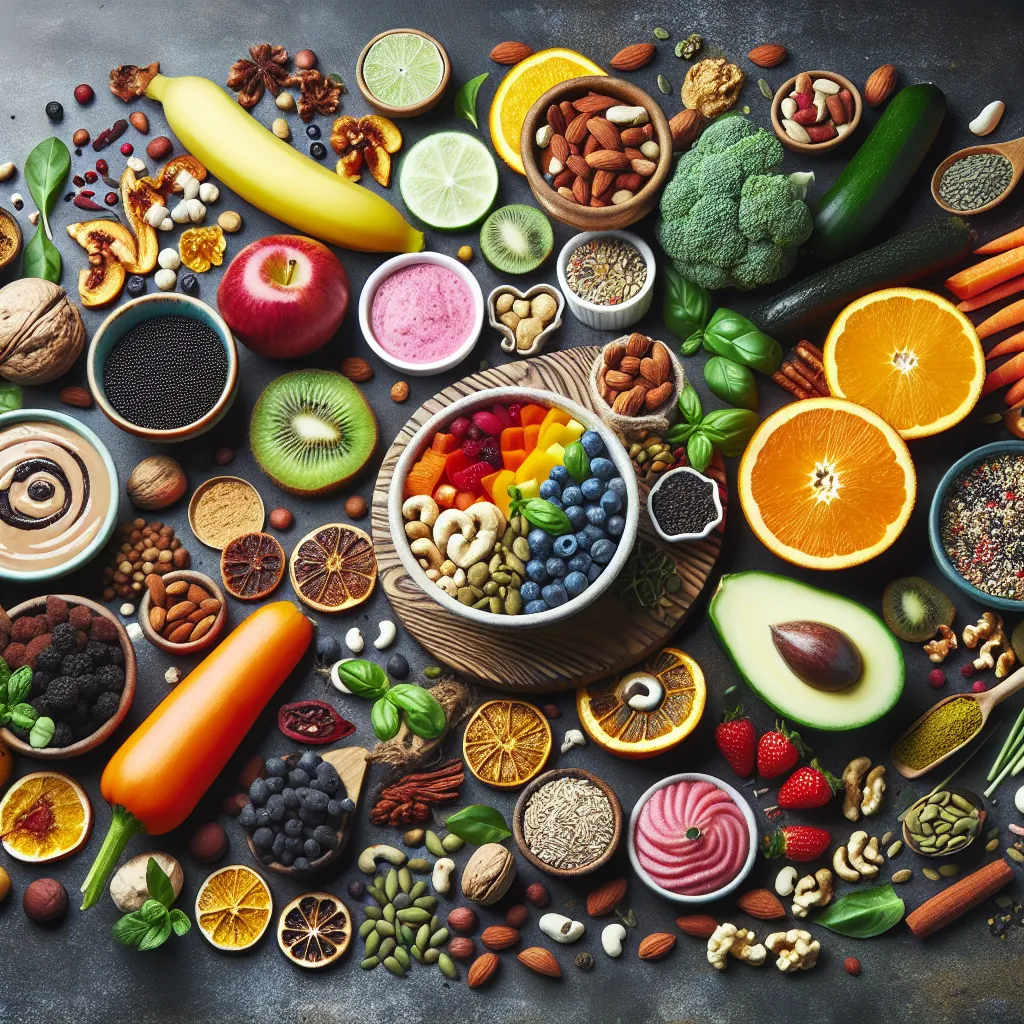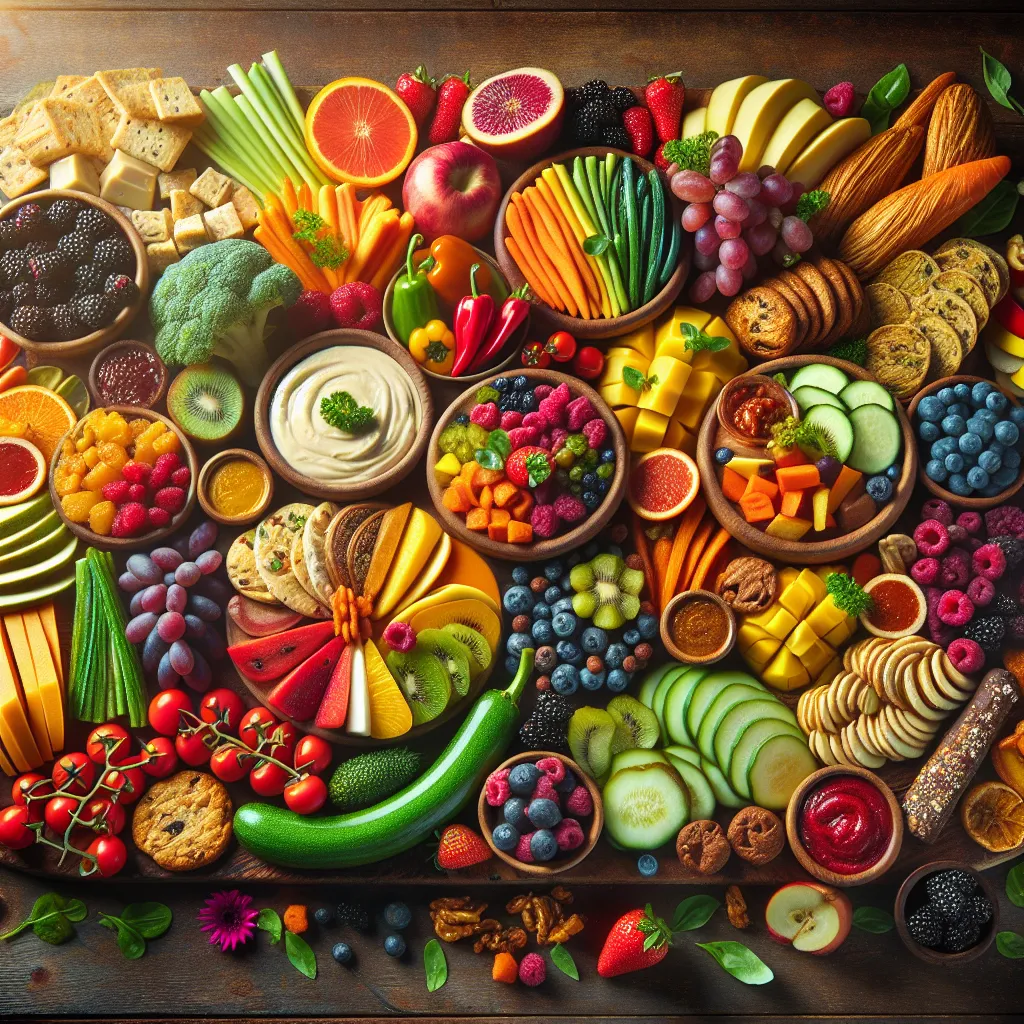– The Rise of Plant-Based Snacking: A Global Perspective
In recent years, there has been a significant rise in the popularity of plant-based snacks across the globe. This trend reflects a growing awareness of the health and environmental benefits of consuming plant-derived products. According to a global perspective, the demand for plant-based snacks has surged as consumers become more conscious of their dietary choices and the impact of food production on the planet.
Regions such as Europe, North America, and Asia have witnessed a substantial increase in the availability and variety of plant-based snack options. Market research indicates that the shift towards plant-based snacking is not limited to specific geographic locations but is a prevailing phenomenon worldwide. This shift can be attributed to factors such as the rise of vegan and vegetarian lifestyles, concerns about animal welfare, and the desire for natural and minimally processed food choices.
Furthermore, the food industry has responded to this trend by innovating and introducing a diverse range of plant-based snacks, including nut bars, veggie chips, fruit-based snacks, and plant protein bars. The accessibility of these products in supermarkets, convenience stores, and online platforms has made plant-based snacking an accessible choice for consumers globally.
As the demand for plant-based snacks continues to climb, companies and food manufacturers are investing in research and development to create new, inventive snack options that cater to the preferences of different cultural and taste preferences. This global perspective on the rise of plant-based snacking underscores the transformative shift in consumer behavior towards embracing healthier, sustainable snacking choices.
– Innovations in Plant-Based Snack Products
As the demand for plant-based snacks continues to rise, the market is witnessing a surge in innovative products that cater to the growing interest in healthier and sustainable snacking options. One of the key trends in this space is the development of new plant-based snack varieties that not only mimic the taste and texture of traditional snacks but also offer unique flavor profiles and nutritional benefits.
Innovations in plant-based snack products encompass a wide range of offerings, including plant-based protein bars, crunchy chickpea snacks, kale chips, and vegan cheese puffs. These products are not only appealing to vegans and vegetarians but are also gaining popularity among health-conscious consumers who are looking to incorporate more plant-based options into their diets.
Manufacturers are constantly exploring new ingredients and flavor combinations to elevate the taste and nutritional value of plant-based snacks. From utilizing superfoods like chia seeds and quinoa to experimenting with unconventional flavors such as turmeric and sriracha, the innovation in this space is driving a diverse array of plant-based snack options to cater to different consumer preferences.
Furthermore, the focus on sustainability and ethical sourcing is also shaping the development of plant-based snack products. Brands are increasingly prioritizing environmentally friendly packaging, using organic ingredients, and supporting fair trade practices to appeal to consumers who are not only conscious of their health but also the impact of their choices on the planet.
In conclusion, the surge in plant-based snack innovations is reshaping the snacking landscape, offering consumers a wider selection of delicious, nutritious, and environmentally responsible options. As the market continues to evolve, we can expect to see even more creative and diverse plant-based snack products that re-define the way we snack.
– Health and Sustainability Benefits of Plant-Based Snacks
As the demand for plant-based snacks continues to rise, it’s essential to explore the health and sustainability benefits associated with this popular trend. Plant-based snacks, which are derived from fruits, vegetables, nuts, seeds, and legumes, offer a multitude of advantages for both individuals and the environment.
In terms of health, plant-based snacks are known for their high nutrient content, offering essential vitamins, minerals, and antioxidants. These snacks are often low in saturated fats and cholesterol, making them a heart-healthy alternative to traditional snack foods. Additionally, many plant-based snacks are high in fiber, which supports digestive health and contributes to a feeling of fullness, aiding in weight management.
From a sustainability perspective, the production of plant-based snacks typically requires fewer natural resources, such as water and land, compared to animal-based snacks. By reducing the reliance on animal agriculture, plant-based snacks can help minimize greenhouse gas emissions and lessen the overall environmental impact of food production.
Furthermore, the ethical considerations of plant-based snacks are significant, as they align with a growing consumer preference for products that are not only nutritious but also produced with minimal harm to animals and the planet.
In conclusion, the health and sustainability benefits of plant-based snacks make them a compelling choice for individuals seeking nutritious, eco-friendly snack options. As the market for plant-based snacks continues to expand, it’s clear that this trend offers not only delicious alternatives but also positive contributions to personal well-being and environmental conservation.
– The Future of Plant-Based Snacking: Consumer Trends and Preferences
As we delve into the future of plant-based snacking, it’s imperative to understand the evolving consumer trends and preferences shaping this burgeoning market. With an increasing focus on health and sustainability, consumers are actively seeking out plant-based snack options that not only satisfy their cravings but also align with their values.
One key consumer trend driving the demand for plant-based snacks is the rising interest in clean label products. Consumers are paying closer attention to ingredient lists, opting for snacks made from wholesome, recognizable ingredients. This has prompted snack manufacturers to revamp their offerings, prioritizing natural, plant-derived ingredients to meet the growing demand for clean label snacks.
Moreover, the surge in plant-based diets and flexitarianism has propelled the popularity of plant-based snacking. Health-conscious consumers are increasingly incorporating plant-based snacks into their daily routines as they seek nutritious, protein-rich alternatives to traditional snacks. This shift towards mindful consumption is steering the plant-based snacking landscape towards innovative, nutrient-dense options such as roasted chickpeas, kale chips, and vegan energy bars.
Another pivotal aspect shaping the future of plant-based snacking is the emphasis on flavor exploration. Consumers are craving diverse, globally-inspired flavors in their snacks, driving companies to introduce a spectrum of enticing flavor profiles in their plant-based offerings. From tangy sriracha to aromatic curry, the evolution of plant-based snacking is marked by an exciting fusion of flavors, catering to the adventurous palates of modern consumers.
In essence, the future of plant-based snacking is underpinned by a deep-seated shift towards health, sustainability, and culinary innovation. With an unwavering focus on clean labels, nutritional value, and diverse flavors, the plant-based snacking industry is poised to cater to the evolving preferences of discerning consumers, driving a dynamic transformation in the snacking landscape.




